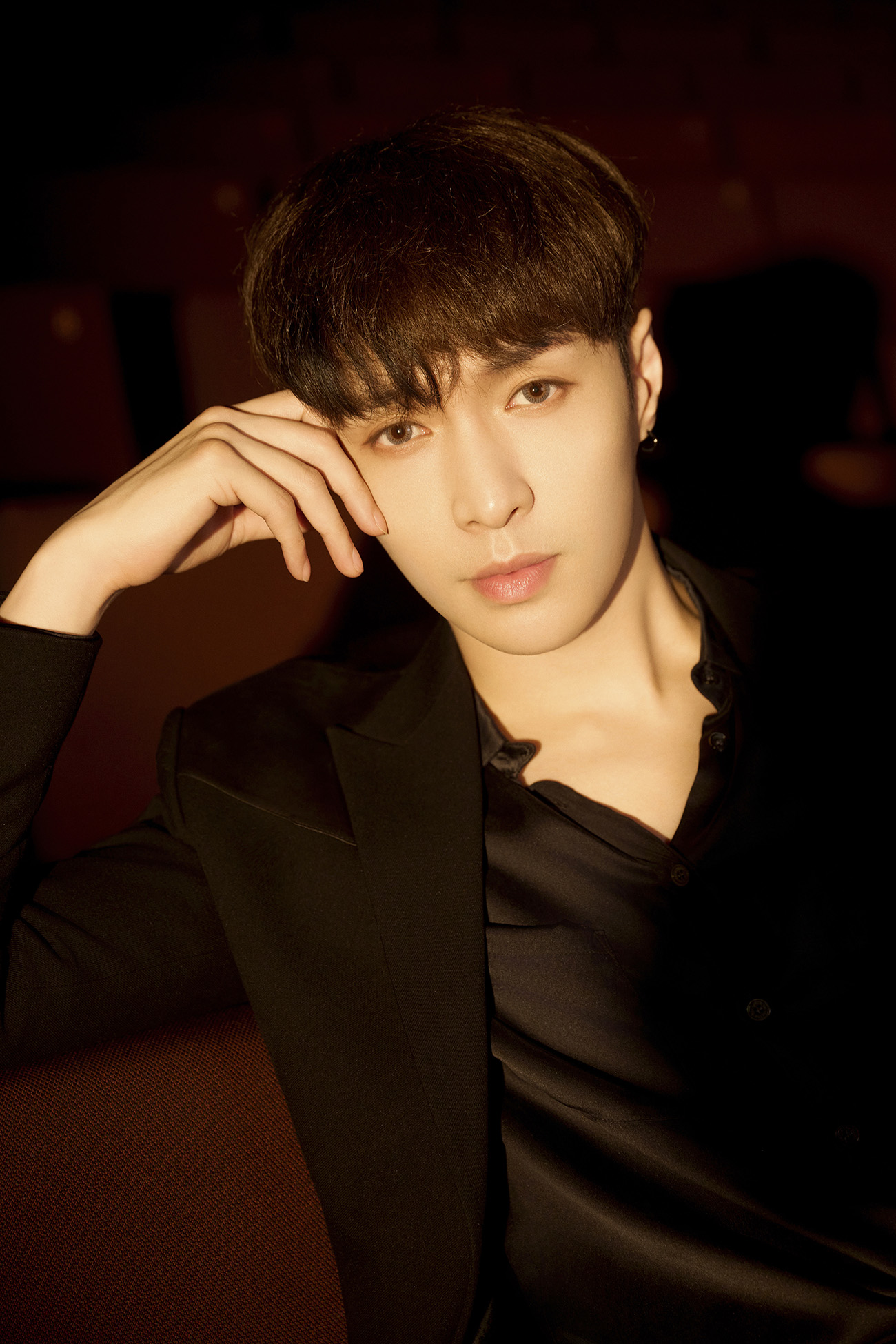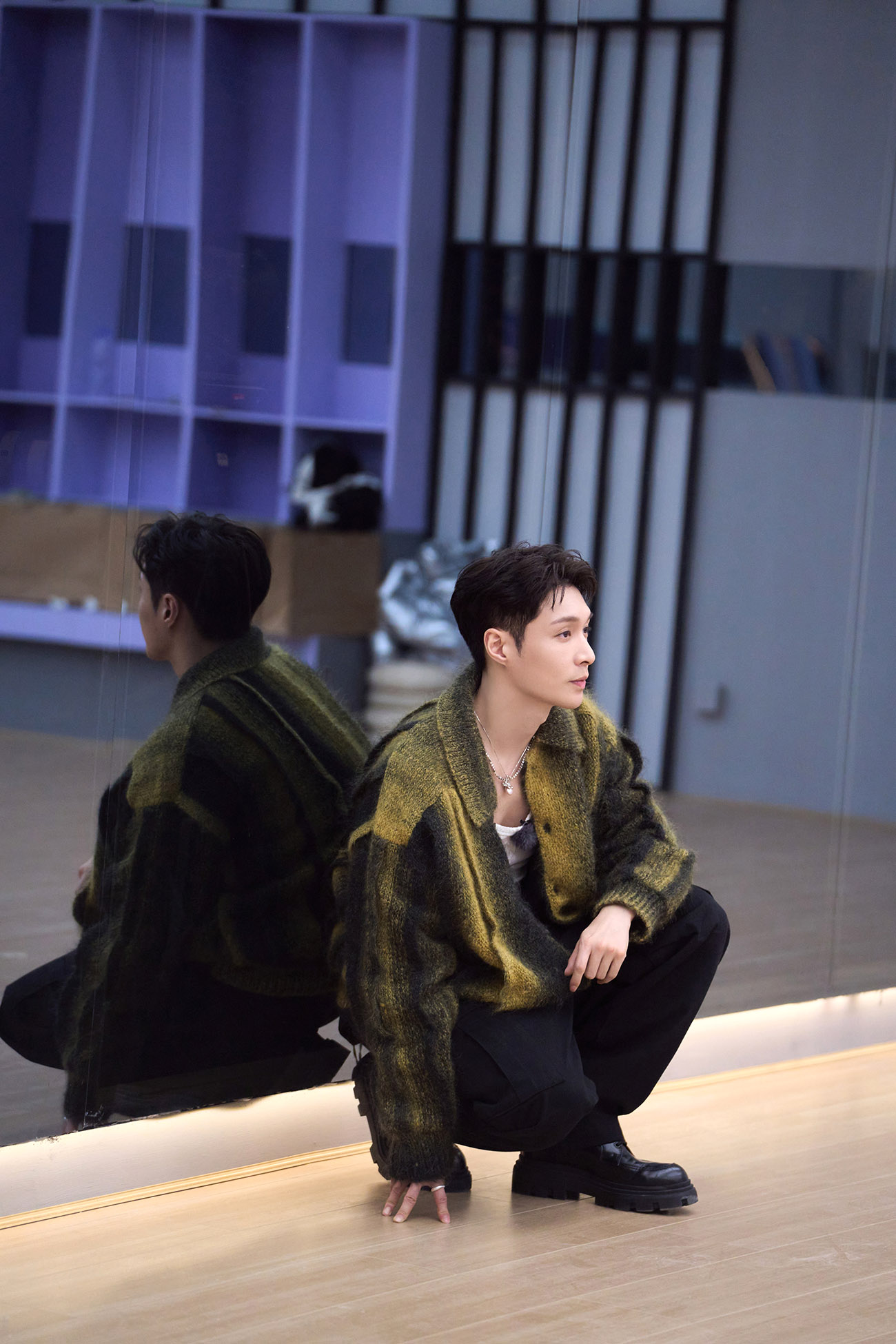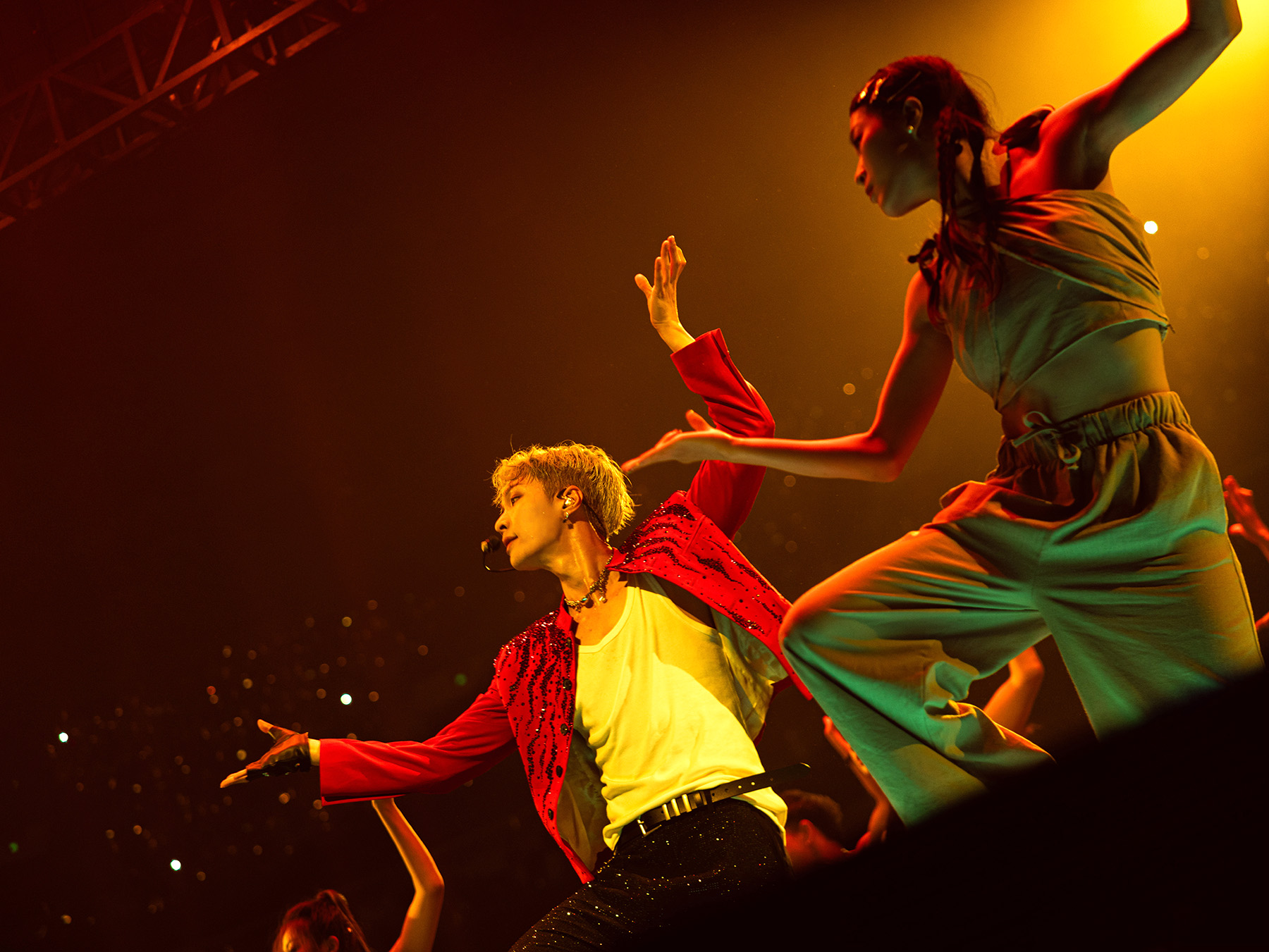Singer-songwriter Zhang Yixing enables mainstream music from his homeland to go global, Xing Wen reports.

Most Chinese born since the 1990s know the quote: "Genius is one percent inspiration and 99 percent perspiration". This saying is frequently found on posters that grace their primary school classrooms' walls.
This adage, widely attributed to American inventor Thomas Edison, emphasizes that great accomplishments rely less on innate talent than on relentless hard work. And it has long served as the motto for pop star Zhang Yixing, who was born in Changsha, Hunan province, in 1991.
Zhang, who's also known by his stage name, Lay, wears many hats, including singer-songwriter, music producer, dancer and actor.
READ MORE: Pop goes the theater
Scouted for his adorable appearance at the age of 6, he first appeared on TV in the drama, We the People.
Later, his early exposure to music, and his study of instruments like piano and guitar, paved the way for his participation in various TV musical-talent shows.
In 2008, Zhang launched his music career after winning a global casting audition for South Korean giant SM Entertainment. Four years later, he rose to fame as a member of K-pop boy band EXO.
Since 2015, he has shifted his focus to the home market, expanding his repertoire to include film, TV dramas and reality shows. He has garnered over 50 million followers on Sina Weibo.
He says the importance of hard work on the path to success is indisputable.
Despite juggling multiple roles, he finds himself easily transitioning among them.
"Entering a scene naturally puts me in the right mindset," he says.
But Zhang explains that he began to question this inspiration-versus-perspiration motto that had guided him as he entered his 30s and reflected on his career.
"I sometimes felt exhausted," he admits.
"Could I achieve success without the one percent inspiration? Not necessarily. Now, I believe both hard work and inspiration are equally vital."
Today, Zhang is determined to find his own balance between diligence and inspiration on the road to new achievements.

Mixing it up
He wants to relax more. Since collaborating with many international music professionals, he has noticed his foreign counterparts often seem to be more chill, while he tends to take things too seriously.
On April 17, Zhang released a new single, Psychic. It is a collaborative effort with foreign music producers, namely Americans Rykeyz, Sean Douglas and Kyle Reynolds, and British singer-songwriter James Abrahart.
The song's music video was shot in Dubai, with a production team of people from 20 countries.
"It's been a wonderful time," says American cinematographer Idan Menin, who served as the video's director of photography.
"Lay has been outstanding. He's one of the hardest working people I've met."
The track is available in Chinese, English and Korean, and features a dynamic blend of genres, melding emotive R&B chords with garage-style beats and bassy undertones.
"Once one of my songs catches the attention of overseas listeners, curiosity leads them to search my name, exposing more people to my songs infused with traditional Chinese cultural elements," Zhang says.

Zhang's signature musical style is "M-pop", which entails blending Mandarin pop music with outside influences. He introduced this concept with the release of his third album, NAMANANA, in 2018.
By the time his fourth full-length album, LIT, was released in 2020, he had clarified his vision for what kind of music he wanted to create within the "M-pop" framework.
"These songs blend traditional Chinese and Western pop instruments, feature lyrics in both Chinese and foreign languages, and tell Chinese stories. The music videos are visually enriched with Eastern aesthetics," he explains.
He discovers boundless inspiration for pop music from his Chinese roots. Such influences include the iconic book, Shanhaijing (Classics of Mountains and Seas); the Silk Road-era cave murals of Dunhuang in Gansu province; and Xizhouqu (Song of West Isle), a ballad from the Northern and Southern Dynasties (220-589).
"Many traditional Chinese music pieces are slow. Their grand, expansive feel is derived from their plodding rhythms. But younger audiences prefer catchy rhythms. Typically, I choose to preserve this atmosphere while sacrificing the catchier beats," he explains.
"So, some of my songs are very distinctive in style but not necessarily pleasing to the ear."

Sounding out
Likewise, he has explored the rich tapestry of Chinese narratives to carve out a space for self-expression.
Take, for instance, the song, Lian (Lit), the title track of the album, LIT.
It derives its name from the Chinese word for lotus — lianhua — which symbolizes purity and nobility in traditional Chinese thought.
The song commences with a grand operatic introduction that recounts the saga of General Xiang Yu (232-202 BC), a tragic hero in Chinese history.
Along with such traditional Chinese instruments as the xiao (a vertical bamboo flute) and pipa (a four-stringed lute), the song also integrates a contemporary industrial bass line, drawing a parallel between the tragic hero, Xiang, and the poetic lotus. Zhang has been called "white lotus "by detractors, who perceive him as less innocent than he appears, and he uses the song to shrug off their criticisms.
The lyrics include the line "taking China to the world", which represents Zhang's greatest ambition.
He has long hoped that more Chinese music could be enjoyed overseas.
"Singles such as Lian (Lit) and Flying Apsaras serve as my 'calling cards'. When interacting with foreign musicians or producers, I often show them the music videos for these songs," he says.
He has found they're most captivated by songs' visual presentations, which is why he invests a lot of time and effort in producing music videos with powerful Eastern aesthetics.
"Numerous treasures from traditional culture await exploration by today's young artists. Through our creativity, we can showcase the richness of Chinese culture to the world in a cool way," he says.
The ambition of "taking China to the world "extends beyond his own music. Recently, he has taken on the role of producer of an online program aimed at forming an influential Chinese girl group.
The program, Show It All, provides a platform for Chinese singers and dancers to engage in exchanges and compete with international counterparts, such as the American group Boys World, the Thai girl group Pixxie and the Malaysian girl group Dolla.
The program allows young female singer-dancers to compete to match international standards by performing alongside talented female music groups from around the world.
ALSO READ: Taylor Swift surprises with 2nd 'Tortured Poets Department' album
Simultaneously, it fosters cross-cultural dialogue between Chinese and foreign youth across various dimensions of cultural life. For example, the adoption of the mutual visa-free policy between China and Malaysia enabled the Malaysian girl group Dolla, on their inaugural visit to China, to perform local songs and present traditional Malaysian attire to Chinese singers and dancers.
Zhou Kui, director of the China Online Video Research Center affiliated with the Communication University of China, says that, for Chinese participants, this peer-to-peer competitive pressure is not only a series of challenges but also a force driving progress. The program assists these Chinese contestants in exploring and defining their unique cultural and stylistic positioning in the international arena, providing multiple rounds of simulation before they formally enter the international market.
"I hope to introduce our Chinese girl group to the world and offer these young women a broader global perspective," says Zhang.
"Balance" is something Zhang used to highly value in pop performances. Now, it's what he also values in his life and work, and effort and talent. Yet the 32-year-old says he is still on the journey to achieve balance.
Contact the writer at xingwen@chinadaily.com.cn


